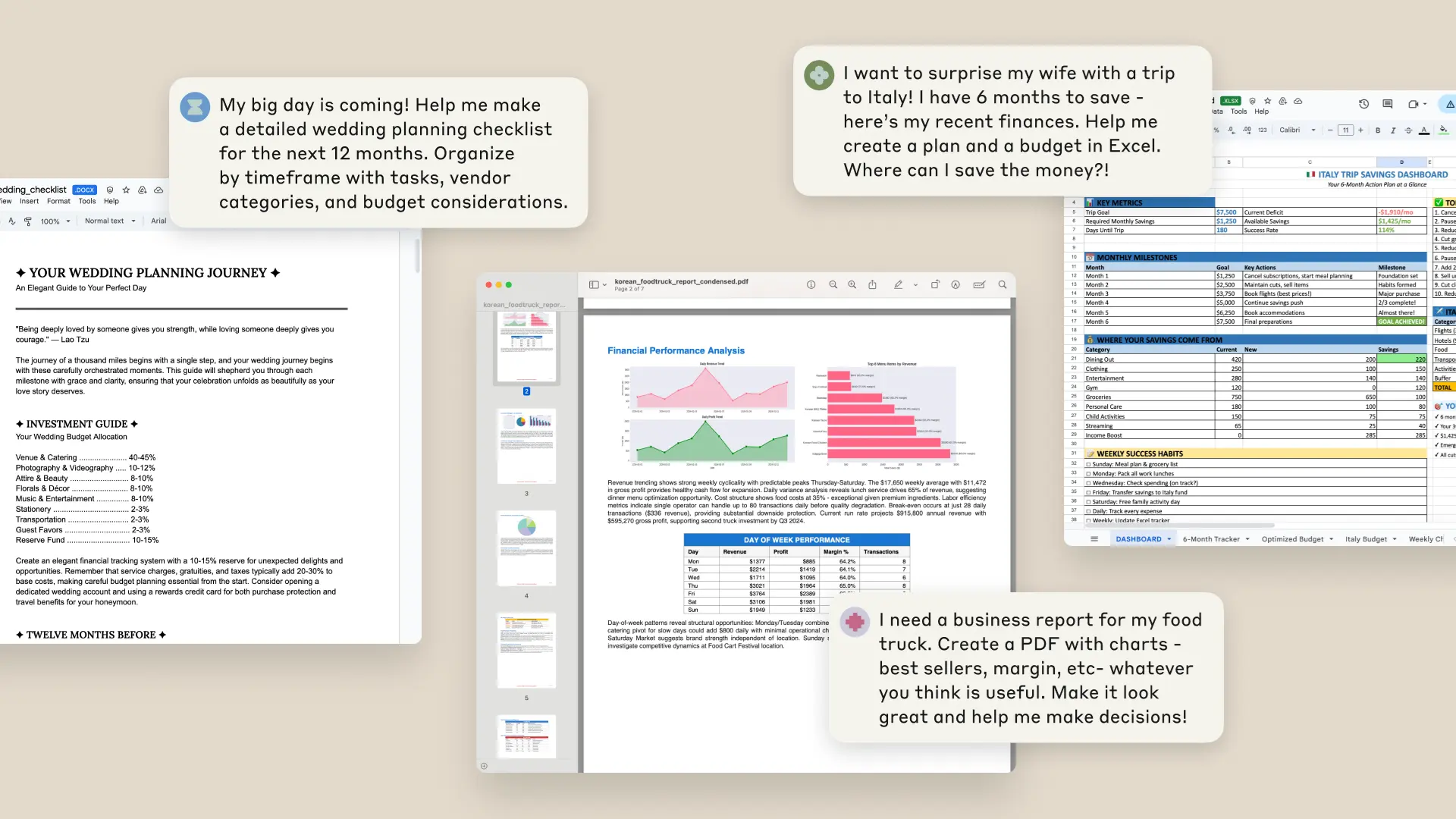Claude AI just became the ultimate work companion, and it might tempt me to switch from ChatGPT
Anthropic's AI turns your words into polished reports, models, and presentations

- Anthropic’s Claude chatbot can now generate fully functional Excel spreadsheets, Word documents, PowerPoint slides, and PDFs from prompts.
- The feature runs code behind the scenes and makes downloadable files in minutes.
- Claude can then collaborate on data analysis, formatting, and format conversions.
Andthropic has upgraded Claude with an entire office setup, giving the AI assistant the ability to produce spreadsheets, reports, PowerPoints, and more as downloadable files from a single prompt. The updated toolkit is available for Claude’s Max, Team, and Enterprise subscribers
Anthropic calls this “upgraded file creation and analysis,” and makes turning raw data into polished files a lot easier thanks to the secure, sandboxed computing environment that lets Claude write and run code in the background.
It used to be you'd have to ask Claude to pull data from a PDF, then put the information into a deck or a spreadsheet yourself. Now, Claude can be handled through one continuous conversation.
The setup essentially offers users a way to generate formats familiar to Microsoft Office or Google Drive through Claude.ai or the desktop app. It's a big step beyond the usual text or code response. The actual file, complete with working formulas, charts, or slides, is ready in a few minutes.
Say you're running a survey for an advertising campaign. You could ask Claude to turn a CSV of survey responses into a dataset for a spreadsheet, complete with pivot tables and basic statistical analysis, along with an executive summary covering all the details. In a few minutes, you'd have an Excel file with everything you want.
I tested an old set of meeting notes and asked for a formatted Word document with bullet points and follow-ups. Three minutes later, it was done. I then went ahead and asked for it to be a PowerPoint, and that took even less time.
This isn’t just about formatting. You don't even have to define what you want. Claude knows what you mean when you ask for a quarterly report. The more context you provide, the better the output. But even vague requests often work. It's a familiar selling point in some ways; Microsoft’s Copilot in Excel and Word already generates similar documents from prompts, as does ChatGPT if you ask it to. But a lot of fans of Claude will be happy to have the option to do so without having to switch to a different AI assistant.
Sign up for breaking news, reviews, opinion, top tech deals, and more.
Claude's formal files
The real advantage here is how the tasks Claude now performs don't require the traditionally required specialized knowledge or time-consuming manual work. If you're a small business owner juggling operations, marketing, and finance, Claude can now help you generate invoices, build forecasts, and turn internal notes into public-facing documents. For students, it could mean more useful study guides and visual aids.
But it’s also clear that Anthropic has its sights set beyond casual users. By opening up these tools to higher-end subscribers, Anthropic clearly wants to move into the productivity software space. Of course, Claude’s new powers depend on an experimental feature toggle, and Anthropic has issued clear warnings about monitoring its output carefully. Because Claude runs code and connects to the internet as part of its file-generation process, users are advised to supervise closely and halt tasks if anything seems off.
I didn’t run into anything that seemed sketchy in my testing, but there are irregular mistakes with any AI assistant, even if it's just having the spreadsheet organized differently than I requested, or a PowerPoint slide with more text than I'd asked for.
Still, as with ChatGPT and Microsoft's offerings in document and spreadsheet creation, there's a lot of potential use in what Claude offers. That's especially true when most AI announcements seem built around a lot of power over simply better formatting.
You might also like

Eric Hal Schwartz is a freelance writer for TechRadar with more than 15 years of experience covering the intersection of the world and technology. For the last five years, he served as head writer for Voicebot.ai and was on the leading edge of reporting on generative AI and large language models. He's since become an expert on the products of generative AI models, such as OpenAI’s ChatGPT, Anthropic’s Claude, Google Gemini, and every other synthetic media tool. His experience runs the gamut of media, including print, digital, broadcast, and live events. Now, he's continuing to tell the stories people want and need to hear about the rapidly evolving AI space and its impact on their lives. Eric is based in New York City.
You must confirm your public display name before commenting
Please logout and then login again, you will then be prompted to enter your display name.
